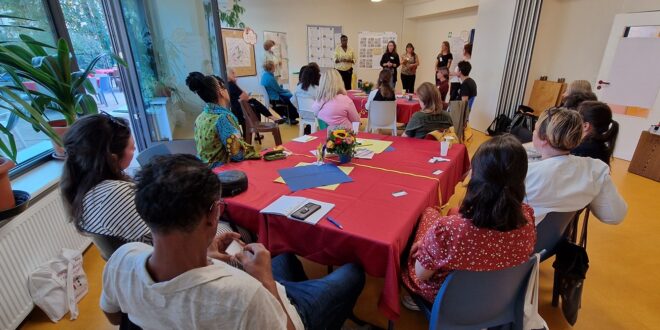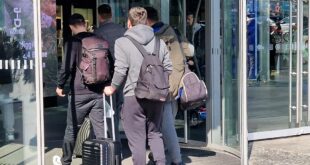The 5th Conference of the German Network for Forced Migration Studies takes place in Bonn from 16-18 September 2024. Themed “Regional and Local Responses to Global Refugee Movements: Contexts, Challenges, Solutions”, it aims to explore the multifaceted dynamics of forced migration, including the root causes, the global and regional factors at play, and the challenges faced by both refugees and host communities.
Key discussions will revolve around the geopolitical, economic and social drivers of forced migration, with particular attention to how different actors – local, regional and global – are addressing these movements.
The event this year is notable for its efforts to engage refugees and organisations that represent them. The 5th Conference is dedicated to incorporating refugee perspectives and amplifying its discussions within refugee communities by inviting individuals with media or journalism backgrounds who are actively involved in or reporting on refugee-related issues. The confab also invites reflections on sensitive issues such as gender and post-colonial narratives.
The 4th Conference of the German Network for Forced Migration Studies, held in Chemnitz in 2022, had made several important recommendations aimed at improving the research process and outcomes in forced migration studies.
One of the key themes was the need to re-evaluate the role of refugees in research. Researchers were urged to move beyond treating refugees merely as subjects of study and to engage them more meaningfully as co-designers of research.
The discussions emphasized the importance of refugee-led organizations (RLOs) in shaping research agendas, ensuring that projects reflect the lived experiences of refugee communities.
Another major recommendation focused on enhancing communication with refugees and creating spaces for their self-representation. Many participants expressed concern that refugee voices are often overshadowed by other actors in the research process. The conference recommended creating platforms for direct communication with refugees and reconsidering how their stories are shared and represented.
It remains to be seen how these recommendations will influence the Bonn confab, organised collaboratively by, among others, the German Network for Forced Migration Studies, Bonn International Centre for Conflict Studies and the European Coalition of Migrants and Refugees (EU COMAR) and funded by the German Federal Ministry of Education and Research (BMBF).
More on the 5th Conference of the German Network for Forced Migration Studies HERE
Femi Awoniyi
READ ALSO Bonn hosts international conference on forced migration
 THE AFRICAN COURIER. Reporting Africa and its Diaspora! The African Courier is an international magazine published in Germany to report on Africa and the Diaspora African experience. The first issue of the bimonthly magazine appeared on the newsstands on 15 February 1998. The African Courier is a communication forum for European-African political, economic and cultural exchanges, and a voice for Africa in Europe.
THE AFRICAN COURIER. Reporting Africa and its Diaspora! The African Courier is an international magazine published in Germany to report on Africa and the Diaspora African experience. The first issue of the bimonthly magazine appeared on the newsstands on 15 February 1998. The African Courier is a communication forum for European-African political, economic and cultural exchanges, and a voice for Africa in Europe.























